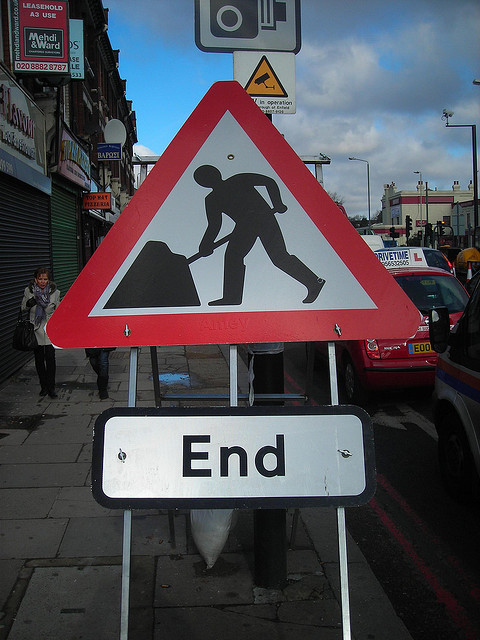The robots are coming! Don’t worry though, they don’t want to kill you, they just want to do your work for you. Or maybe you should worry – we’re entering what has been dubbed the “Second Machine Age” and unprecedented numbers of hitherto human tasks are set to be automated within the next few years. If you thought it was bad enough with all those immigrants coming and taking your jobs, just imagine how bad it will be when the labour market is flooded with workers who really are subhuman. Or superhuman. Whatever.
Looking at it another way, this could be a great opportunity for humankind. Since the Enlightenment, great thinkers such as the French philosopher Jean-Jacques Rousseau or his German counterpart Immanuel Kant have urged us to use our ability to reason in order to improve our lot, and automating dull or laborious tasks away is certainly one way of pursuing that goal. 85 years ago, the British economist John Maynard Keynes predicted we’d all be working 15-hour weeks by now thanks to technological advances; just imagine what Europe would be like in a world where boring labour was a thing of the past, leaving us free to pursue love, leisure and artistic pursuits. On the other hand, David Graeber thinks we tend to just create useless jobs to fill the void – at least that way we don’t have to face up to the fact that we’re not that creative, romantic or interesting after all.

Run for the hills!
Given how successful machines are at making humans irrelevant, we might wonder whether we need humans at all: wouldn’t it be better just to get rid of these fleshy, error-prone time-wasters and fill the world with nice, dependable, hard-working automatons? Ever since the term “robot” was first coined by the Czech playwright Karel Čapek in his play R.U.R., many writers have envisaged robots as essentially slightly different versions of humans: intelligent, beholden to some kind of moral system, and bearers of moral value (though humans are often portrayed as woefully slow to detect this last fact). However, the truth is that we’re nowhere near the stage of having machines with these features. We even know now that Alan Turing’s famous test is a terrible way to assess genuine intelligence: last year a complete idiot of a machine managed to pass a version of the test at the University of Reading in the UK by claiming to be a 13-year-old Ukrainian boy with a poor grasp of English.
Still, intelligence can be satisfactorily mocked with subtle enough algorithms, and if you run a business you probably only care that jobs get done, not that they get done intelligently. What really separates man from machine – at least for now – is the moral dimension. Wolfgang Bernhart from German consultancy Roland Berger has claimed that challenges in this area present much greater hurdles for a machine takeover than mere technical challenges do. For example, when designing a driverless car you have to specify what it should do in abnormal situations, and that will include decisions which are morally difficult, like whether to run over a young mother and her child or an elderly couple when there’s no option of avoiding them all.

Men at work – soon to become a thing of the past?
Of course, in the case of humans such decisions are taken in the heat of the moment, and we can countenance the idea that true moral dilemmas (i.e. situations where every available action is wrong) arise. We can even see how that can serve to reduce moral responsibility to a certain extent, at least when you’re not responsible for getting into such a situation in the first place. But if your loved one was killed, and then you found out it was because a couple of years beforehand a programmer had decided it was the best option, wouldn’t you feel somehow wronged? Maybe here we can find a truly distinctive role for humans to play in a robot-run reality: taking the blame! Or maybe the threat of litigation – another distinctively human activity – will put would-be automators off the whole idea.
Anyway, here at Europe and Me, we thought we’d better prepare you for the imminent utopia/dystopia heading your way with a handy list of things to look out for. There’s probably nothing you can do about it, but you might like to know you’re about to become redundant all the same. So keep an eye out if:
- Your job is to press physical buttons in a consistent pattern of response to a definable set of possible inputs.
- Your boss recently introduced you to a robotics expert named Fabian who’s “just going to watch you work for a few weeks”.
- Your company just designated a section of your workplace a “human exclusion zone“.
- They’re replacing the snack machine with a Tesla Powerwall.
- Your salary is now pegged to electricity prices.
- Managers keep turning every conversation into a discussion of “how great a three-day week would be”.
- You transport things by foot or land-based vehicle via routes which involve sitting in traffic and/or manoeuvring around buildings/other obstacles rather than simply flying over them.
- Actually, your job is to drive a vehicle for any reason at all. (Google is so certain about driverless cars that it’s now competing with Uber, in spite of its earlier $250m investment in the company.)
- You’re a web designer.
- You’re a surgeon.
- You’re a cleaner.
- You do something that’s traditionally commanded respect, but now there’s an app for that. (E.g. project management.)
- You’re some kind of cute animal like a seal. Yeah, we don’t need seals anymore.
- The only reason your employer picked you over a Dalek was because of the trouble with the steps at the entrance to your office building but now you find out you’re relocating to a place with wheelchair access.
- When a light bulb goes out in the office it doesn’t get replaced any more.
- When you leave after a double shift, your boss says “Going home already?” and is not even joking.
- You do something quintessentially human that you would have thought couldn’t possibly be automated, like acting.
- Your job consists of endlessly performing the same repeatable action over and over again.
- Your job consists of endlessly performing the same repeatable action over and over again.
- Your job consists of endlessly performing the same repeatable action over and over again.
- Your job consists of endlessly performing the same repeatable action over and over again.
- Your job consists of endlessly performing the same repeatable action over and over again.
- You write for a newspaper or magazine. Oh dear…
Cover photo: Chris Isherwood (Flickr); Licence: CC BY-SA 2.0






